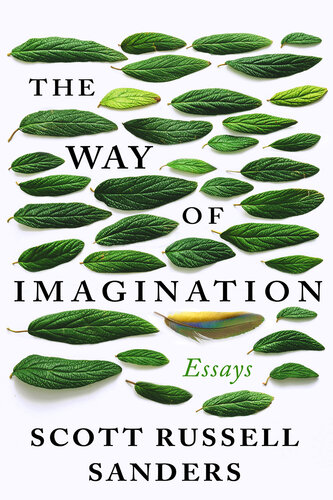
The Way of Imagination
Essays
کتاب های مرتبط
- اطلاعات
- نقد و بررسی
- دیدگاه کاربران
نقد و بررسی

April 20, 2020
Sanders (Dancing in Dreamtime) casts a powerful spell with this fine collection of mostly previously published essays. Recurring themes throughout include the toll of violence and environmental devastation—he asks, in the title essay, if people can be imaginative enough to try more sustainable ways of life, either at the individual or societal level—and his reasons for being a writer. About the latter, Sanders states, in “A Writer’s Calling,” that one of his driving motivations is to make something durable, concluding that if he succeeds, it will be because his works “faithfully embody the choices I made, the causes I championed, the stories I told.” In “Useless Beauty,” he ponders the patterns on a nautilus shell, discovering that while beauty may not appear to have an immediate purpose, it nevertheless “calls us out of ourselves” and inspires gratitude for living in a “world overflowing with such beauty.” In another selection, “Kinship and Kindness,” Sanders invites readers to open themselves to a sense of being a part of “all living things,” since the “feeling of kinship is the source of kindness.” Much like Wendell Berry and Thomas Merton, Sanders urges readers to discover the inextricable connections between nature and humanity.

Starred review from May 15, 2020
A profoundly humane essayist, novelist, and nature writer finds glimmers of hope for a world in peril. Sanders, the author of more than 20 books of fiction and nonfiction, investigates our unprecedented rate and scale of environmental destruction, species extinction, and cultural disintegration, locating some familiar culprits: the fundamental scaffolding of capitalism, unrestrained (and unsustainable) growth, wealth defined only in terms of money, grotesque income inequities, overpopulation, squandered resources, and an utter lack of political will to do anything substantive about it. He explores what drives our risky behaviors and antiquated mindsets, painting a grim panorama of human follies and their consequences. However urgent, none of this is terribly original, nor does Sanders, who is often intensely personal, claim it to be. What sets this collection apart is the manner in which he connects these crises and, even in his most despairing moments, assays our capacity for change. One may argue that Sanders overestimates the power of art (literature especially) to sway the multitudes--particularly the comfortable denizens of developed nations--when history shows that the arts have exerted comparatively little direct influence on human actions. The author is no Pollyanna, but he puts his trust in our individual and collective imagination--not just science or the more benign tenets of religion--to conceive of and walk a more constructive path. "Imagination breaks the shell of the status quo," he writes, "summoning up objects that do not yet exist, actions that no one has yet performed, and wiser ways of living that have yet to be realized....Time and again, bold acts of imagination have given rise to profound shifts in our ethical views and social practices." Given his focus on domestic foolhardiness, some will criticize Sanders' exhortations as anti-American or socialistic, but this is a narrow, misguided view. Changing attitudes is our most difficult task. Sanders, an insightful guide, knows we have no choice but to try.
COPYRIGHT(2020) Kirkus Reviews, ALL RIGHTS RESERVED.

























دیدگاه کاربران